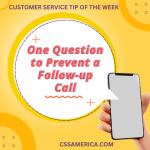Sandy was hungry, and she was on the move. Driving between meetings, she saw the restaurant sign and pulled in. The fast-food restaurant had two drive-thru lanes. One was for any customer who wanted to place an order on the spot. The other was for mobile orders only. The line for people placing the order was so long that it almost stretched to the street; there was no line in the mobile order lane. Luckily, Sandy had downloaded the mobile app once before, so she pulled it up on her phone, placed the order, and then moved into the mobile app lane. She had her food in less than two minutes.
The next day, Sandy had to make a deposit into one of her accounts at the bank, and withdraw cash from another account. She had a habit of going into the branch, but when she walked in, there were 15 customers in line with two tellers waiting on them. While waiting for a couple minutes, she noticed the drive-thru teller in a separate room in the back. She noticed that teller was looking at her phone and occasionally peering at her computer screen – she wasn’t busy. So Sandy left the branch, hopped in her car, and was first in line at the drive-thru. She was out of there in about 3 minutes.
When Sandy got home, the Wi-Fi wasn’t working. She used her phone app to access the internet provider’s site and logged into her account; she noted the customer care phone number, so she dialed. The system said that she was sixth in line, and the estimated hold time was 12 minutes. She noticed a chat function on the app, so while she remained on hold, she launched a chat. Sandy got a hold of a representative immediately, they put a ticket in, and within two minutes, they had begun remotely testing her Wi-Fi. She hung up the call.
These are three organizations that could have had clear stories of poor customer service experiences, but luckily for them (and for Sandy!), there was an alternative option in each case. Sandy was able to order via the mobile app. She was able to get into her car and go through the drive-thru teller line. She was able to initiate a chat even while she was on hold on the phone.
It was a better experience because there was an alternative option, and most of all because she was aware of the alternative.
As you strive to deliver great customer service, know the options available to your customers. Maybe the line is long, but the line might be shorter if some member of the team informed the customer of the other options. Maybe the wait seemed excessive, but the wait would be shorter if one of the employees could convey an alternative to the customers that might give them service quicker.
Sometimes the best thing we can do to serve our customers is to build their awareness of other ways they can get their needs met.
Create awareness of alternatives.
Signup for FREE Tips! Contact Us More Resources for You Visit Our Home Page
























